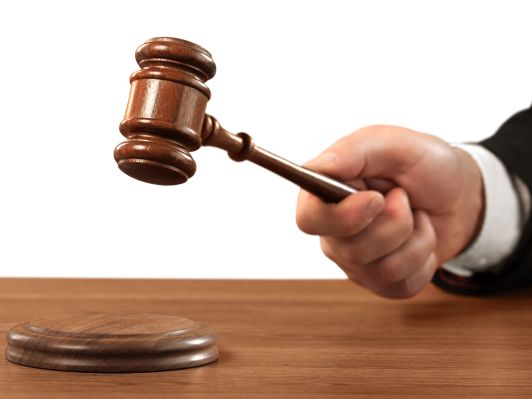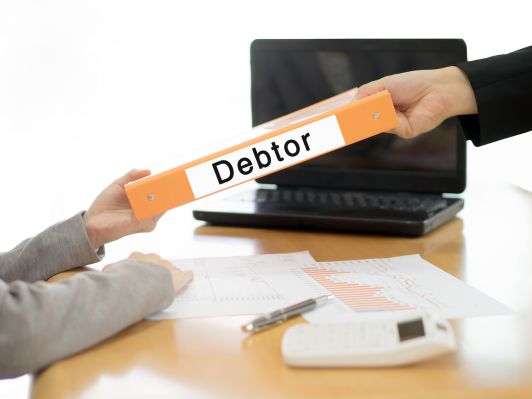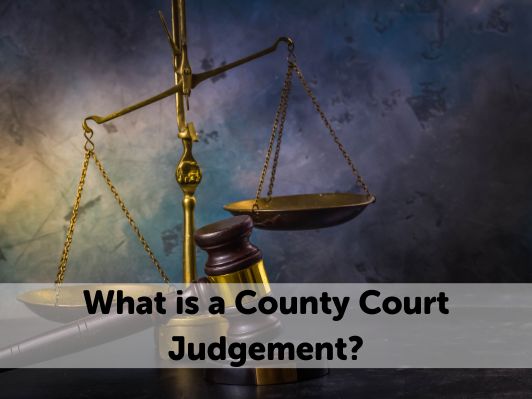Have you heard of County Court Judgments (CCJs) but aren’t sure what they mean for your finances? Let’s break down what CCJs are and how they might affect you.
What is a County Court Judgment (CCJ)?
A County Court Judgment (CCJ) is a court order issued by the County Court in England and Wales. You may get a county court judgment for debt if someone takes court action against you saying you owe them money and you don’t respond or pay the debt.
When you don’t pay money you owe, the person or company you owe the money to can take you to court. If the court has formally decided that you owe the money, they will issue a judgment against you.
How CCJs are issued in the UK

The process for court judgments for debt follows these steps:
1. Starting the process
The process begins when a creditor (person or company you owe money to) sends you a letter saying they plan to take court action. If you ignore it, you could receive a county court claim for the money owed.
2. Your response

When you get a claim, you should respond within the date on the email or letter you receive. You can:
- Pay the full amount
- Admit you owe the money and offer to pay it back in monthly payments
- Dispute that you owe the money
3. Court decision
If you don’t respond or if the court decides against you, you will get a judgment saying you must pay the debt. You don’t usually need to attend court for this to happen.
What happens if you get a judgment?
If you get a county court judgment, you’ll receive a court order telling you:
- How much you owe
- How to pay (all at once or in instalments)
- The date by which you need to pay
- Who to pay
It’s important not to ignore this. Judgment do not ignore notices, as further action can be taken if you don’t pay.
CCJ consequences on your credit
A CCJ can seriously affect your finances:
Impact on your credit report
The CCJ will appear on your credit file for six years unless you pay the full amount within one month. Credit reference agencies will record this information, which lenders can see.
Harder to get credit
With a CCJ on your credit report, you may find it harder to:
- Get a mortgage
- Take out loans
- Get a credit card
- Set up some services like mobile phone contracts
Your credit rating will be damaged, making borrowing more expensive even if you can get approved.
Steps to address and manage CCJs
If you receive a CCJ, here’s what you can do:
1. Don’t ignore it
The worst thing you can do with a CCJ is ignore it. This could lead to being taken back to court and forced to pay through methods like:
- Taking money directly from your wages (through the debtor’s employer)
- Taking money from your benefits
- Taking your belongings to sell
- In rare cases, making you bankrupt
2. Respond to the claim
Always respond to any court claim you receive. Fill out the reply form and return it promptly. If you admit you owe the money but can’t afford to pay it all at once, suggest a payment plan.
3. Pay if you can
If you can pay the full amount within one month of the judgment date, the CCJ will be removed from your credit file. If you pay later, it will stay on your file for six years but will be marked as “satisfied.”
4. Seek advice
If you’re struggling with debt, get help from organisations like:
- Citizens Advice
- StepChange Debt Charity
- National Debtline
Can a CCJ be cancelled or set aside?
In some cases, a CCJ can be cancelled or set aside if:
- You didn’t receive the claim documents
- You responded to the claim but your response wasn’t considered
- You have a good reason why you couldn’t respond
You’ll need to apply to the court and pay a small fee. If successful, you may still need to defend the original claim.
How to pay a CCJ
When you pay a CCJ:
- Make sure you pay exactly as instructed in the judgment
- Keep proof of payment
- If you pay in full within one month, the CCJ won’t appear on your credit file
- If you pay after one month, contact the court to get a “Certificate of Satisfaction”
How do you read a court judgment?
A court judgment will show:
- The case number
- Your name and the creditor’s name
- How much you owe
- How you should pay
- The deadline for payment
- Details of what happens if you don’t pay
What happens if you don’t pay?
If you don’t pay as ordered, the creditor can ask the court to enforce the judgment through:
- An attachment of earnings – taking money from your wages
- A charging order – securing the debt against your property
- A third-party debt order – freezing and taking money from your bank account
- Bailiffs – taking your belongings to sell
Bottom line
A CCJ is a serious matter that can affect your finances for up to six years. Always respond to court claims, try to pay what you owe if possible, and seek help if you’re struggling with debt.
For debt in Scotland, the process is different. You would receive a different type of claim called a Simple Procedure Notice of Claim. If you need help with debt in Scotland, contact Scotland’s Insolvency Service.
FAQs
How do you get a county court judgment?
A county court judgment happens when someone you owe money to takes court action against you. If you don’t respond to the claim or if the court decides you owe the money, they will issue a judgment.
Who issues my county court judgment?
Your county court judgment is issued by the County Court in England and Wales (or the High Court judgment for larger claims). It comes after a creditor files a claim form because of unpaid debt.
Disclaimer: The information above is provided for reference only. This is not financial or legal advice.




